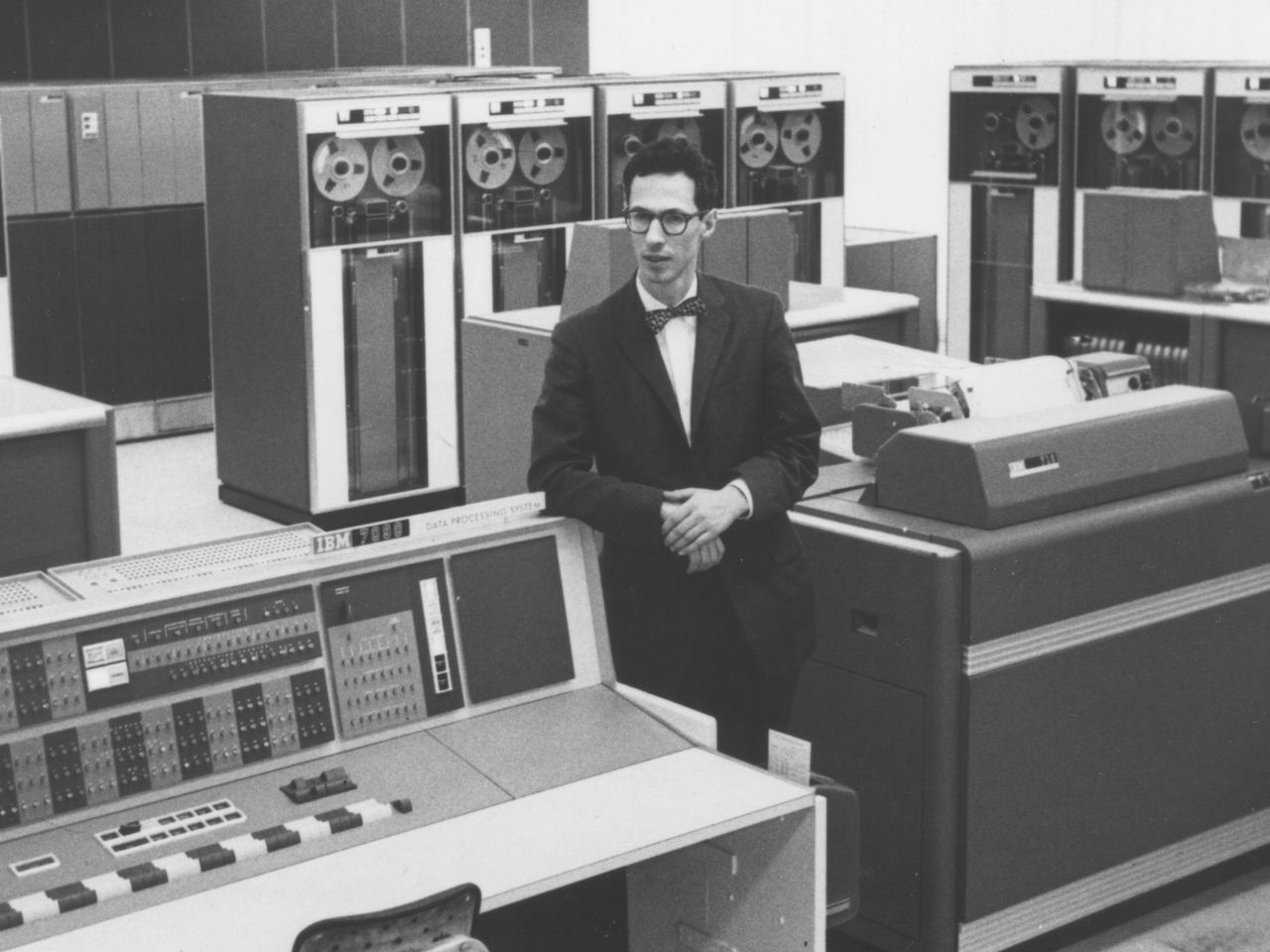A Network of Science
A beautiful visualization project from Nature converts 150 years of scientific papers into a 3-dimensional network diagram, making concrete the network of citations and references linking together the history of discoveries.
This is a presentation from Fernando Corbató from the 1990 ACM Turing Award lectures. Corbató was one of the creators of both the Compatible Time-Sharing System (CTSS) at MIT and Multics, the operating system that influenced Unix.
 Fernando Corbató at MIT
Fernando Corbató at MIT
He describes the challenges in those programs with their novel approaches: you always encounter failure states when pushing the edge. His takeaways in his experience building “ambitious systems”:
First, the evolution of technology supports a rich future for ambitious...
Image credits: MIT Museum
J.C.R. Licklider’s seminal 1960 paper on what would eventually become the personal computer.
Man-computer symbiosis is a subclass of man-machine systems. There are many man-machine systems. At present, however, there are no man-computer symbioses. The purposes of this paper are to present the concept and, hopefully, to foster the development of man-computer symbiosis by analyzing some problems of interaction between men and computing machines, calling attention to applicable principles of man-machine engineering, and pointing out a few questions to which research answers are needed. The hope is that, in not too many years, human...
A beautiful visualization project from Nature converts 150 years of scientific papers into a 3-dimensional network diagram, making concrete the network of citations and references linking together the history of discoveries.
I’ve been reading some of Hayek’s famous articles this week. This one is all about what he probably considered one of the most important concepts, since these basic ideas form a central thesis for most of his works. His argument was for bottoms-up, decentralized systems of decision-making instead of centralized, top-down systems:
The peculiar character of the problem of a rational economic order is determined precisely by the fact that the knowledge of the circumstances of which we must make use never exists in...